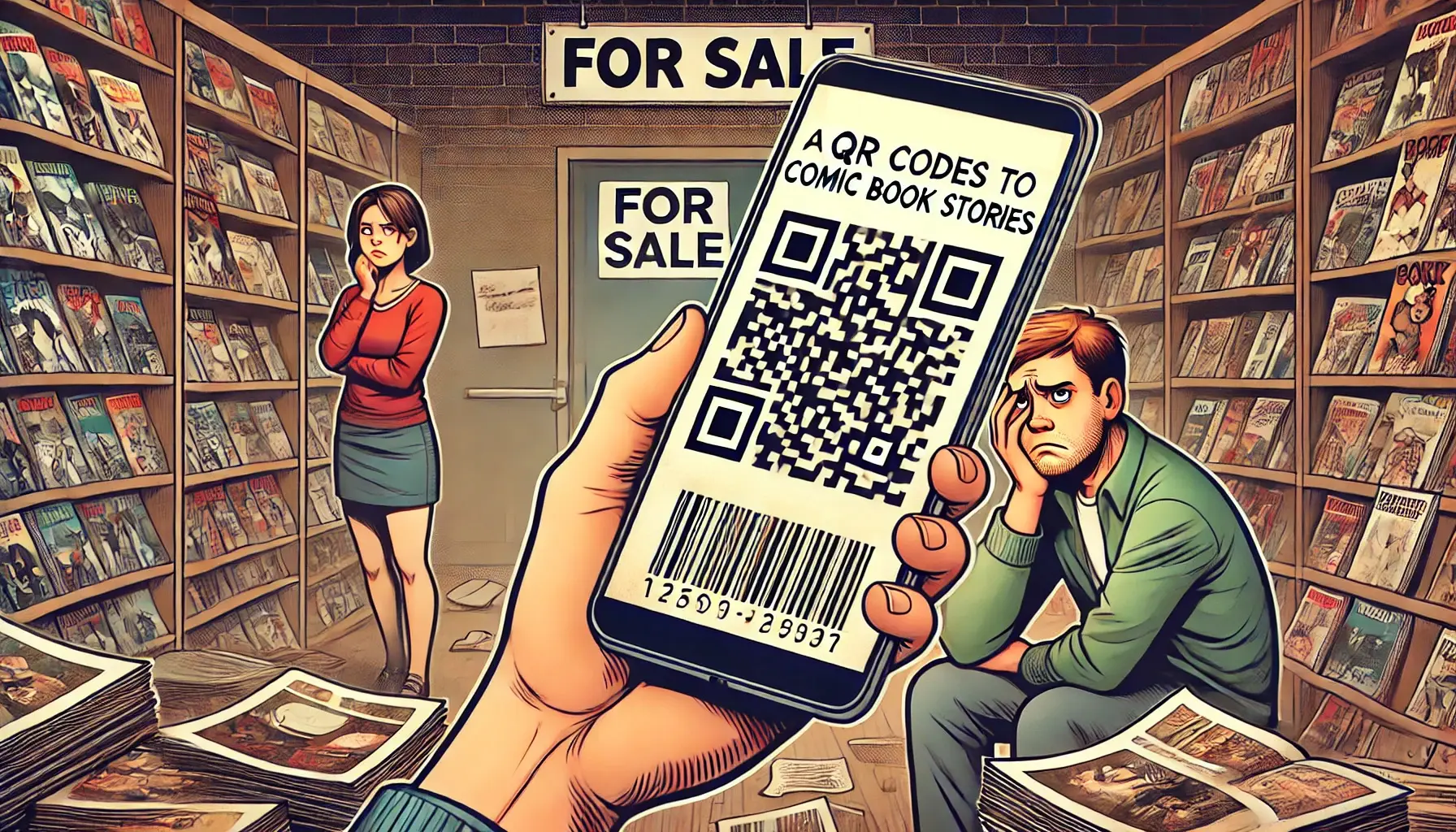The Double-Edged Sword of the Comic Book Industry
Marvel Comics has long been a titan in the comic book industry, shaping the landscape with iconic characters and epic storylines. However, a recent practice of including QR codes on the last page of their books has sparked debate among fans, retailers, and industry experts. This trend, often leading to cliffhangers or big reveals, is seen by some as innovative while others view it as detrimental to the direct market. After some careful consideration it can be argued that this approach could harm the traditional comic book market.
The Rise of QR Codes in Marvel Comics
Recently, Marvel Comics has embraced digital integration by including QR codes on the final pages of their issues. These codes often link readers to additional content, previews of upcoming issues, or digital versions of the comics. This practice aims to enhance the reader’s experience and provide a seamless transition to Marvel’s digital platform.
Proponents of this strategy argue that QR codes are a natural evolution in a digital age. By offering instant access to supplementary content, Marvel can engage readers more deeply and keep them excited about future releases. Digital integration also allows for a more interactive and immersive experience, appealing to tech-savvy audiences who appreciate the convenience and accessibility of digital comics.
The Downside for the Direct Market
Despite these benefits, there are significant concerns about the impact of QR codes on the traditional comic book market. One major issue is the potential reduction in physical comic book sales. By directing readers to digital platforms, Marvel risks alienating comic book shops and reducing foot traffic to these essential community hubs.
Another critical concern is the effect on the release schedule of trade paperbacks. The use of QR codes and digital previews may encourage readers to wait for the collected editions rather than purchasing single issues. This shift can lead to a decline in single-issue sales, which are crucial for comic book stores. The anticipation of a full story arc, often teased through QR codes, might persuade readers to hold off on buying individual comics.
Unforeseen Consequences of QR Codes
The inclusion of QR codes can lead to unforeseen consequences that may further impact the comic book industry. There is the potential for alternate endings based on different QR codes, which could fragment the narrative experience. Readers might feel compelled to scan multiple codes to get the full story, leading to frustration and dissatisfaction.
Additionally, there is the risk of increased piracy. QR codes can be easily shared online, making it simpler for unauthorized distribution of digital comics. This undermines sales and devalues the content creators’ work. Further, it has the potential to cause erosion of the collector’s market. Physical comics with QR codes might be viewed as less valuable or desirable compared to those without, impacting the resale and collectible market.
Perspectives from Industry Insiders
Comic book retailers have voiced their concerns about this trend. Ryan Higgins, owner of Comics Conspiracy in Sunnyvale, California, expressed his worries, stating, “When readers are directed to digital content, it pulls them away from the physical books and, by extension, the stores that rely on those sales.” Higgins is not alone in his concern; many retailers feel that the inclusion of QR codes could spell trouble for the traditional comic book shop.
On the other hand, some industry experts believe that embracing digital technology is necessary for the survival and growth of the comic book industry. According to AIPT Comics, these QR codes are seen as a way to bridge the gap between physical and digital media, potentially attracting a new generation of readers who are more inclined towards digital consumption.
Final Thoughts
While the use of QR codes in Marvel Comics offers exciting possibilities for reader engagement and digital integration, it also poses significant risks to the traditional comic book market. The potential decline in single-issue sales and the shifting habits of readers towards trade paperbacks or digital formats could harm comic book shops and the broader industry.
Ultimately, Marvel and other publishers must consider the long-term implications of their digital strategies. By finding a balance that supports both physical and digital sales, they can ensure the sustainability of the comic book market while embracing the advantages of new technology. However, as it stands, the current approach of using QR codes as cliffhangers or for big reveals could do more harm than good, risking the very foundation of the direct market.


